REVIEW : "Rebecca" (1940) - Movie by Alfred Hitchcock
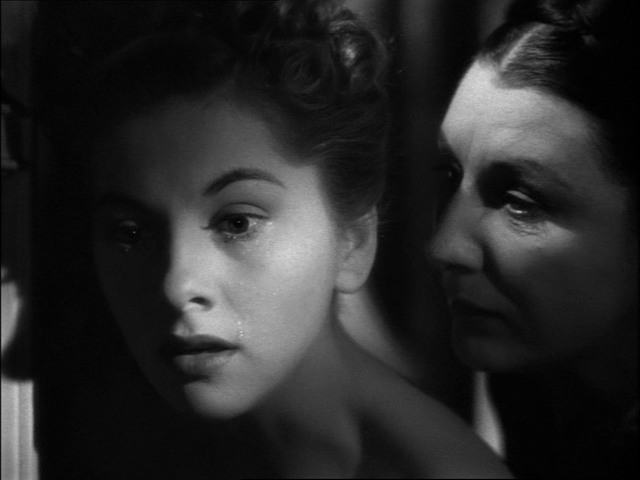
I don't think it is a coincidence that Hitchcock chose to go to America at the outbreak of the Second World War. It was as good as certain that the homeland of Britain would not be a fruitful place for an ambitious and talented director to be during a conflict like that. He had apparently been offered deals from Hollywood on several occasions before he actually went, but given the time, an offer to "join" David O. Selznick in the states, adapting the Daphne Du Maurier novel Rebecca, made it possible for Hitchcock to stay ahead in the game after crossing the Atlantic to the "neutral" United States where the studio system was ripe for him.
At the same time it is no big secret that Hitchcock only saw this as an entry ticket to manifest his name in America, not exactly because he liked Selznick. in fact he hated the man, who would interfere much more than he was used to in Britain and demand certain things to be included or abandoned after his own head. As a producer Selznick had a big word, but Hitchcock always visualised his movies in his head before shooting so the footage that eventually was created was more or less strictly fitted to the way he wanted to edit it.
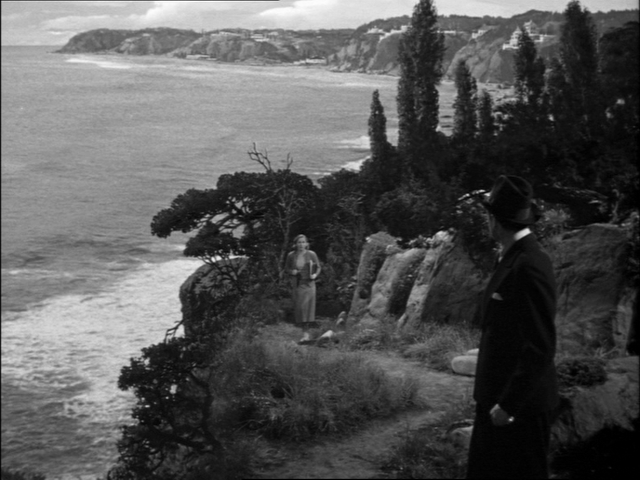
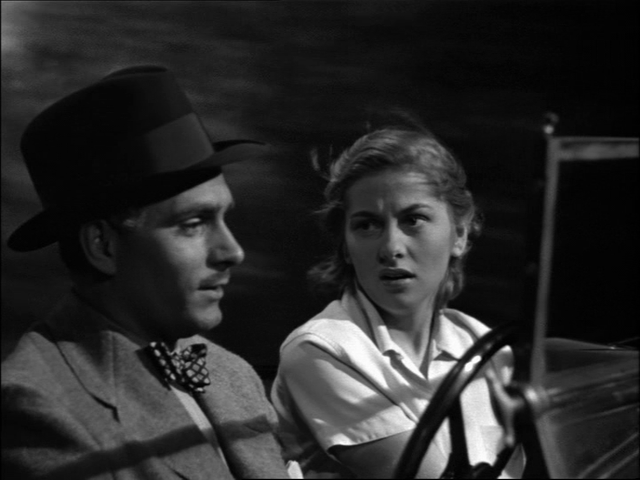
Rebecca, as far as I can recall, was my first encounter with a Hitchcock movie. I remember my mother mentioning that this legendary dark and mysterious movie was to be shown on the telly and how I was mesmerized by its visual style and gothic feel. I clearly remember the opening shots of the pathway to Manderley, the stormy ocean and the first meeting of De Winter and the girl in the windswept slopes overlooking the coast. It was probably the first time I had an idea of the power of visuals in cinema. This setup is in my opinion still one of the most haunting and evocative ones, as it uses mostly visuals to create a notion of grandiosity, longing, darkness and menace.
The following expositional parts leading to the "shotgun" wedding of the couple, has a hard time keeping up with filmic genius on that level. But luckily, we do not delve too much on setting up their relationship as it is not needed and works well to underscore the swiftness of the whole affair. One thing I do notice is the obvious symbolism in De Winter "catching" the marriage in his hat as it is dropped out a window. It is both as frail as a leaf in the wind but it is also akin to an innocent orange catched in his turban, in a playful and slightly pretended childish manner. In fact, De Winter treats his newfound prize as a child, reprimanding her every so often, like he is a dominating father to her.
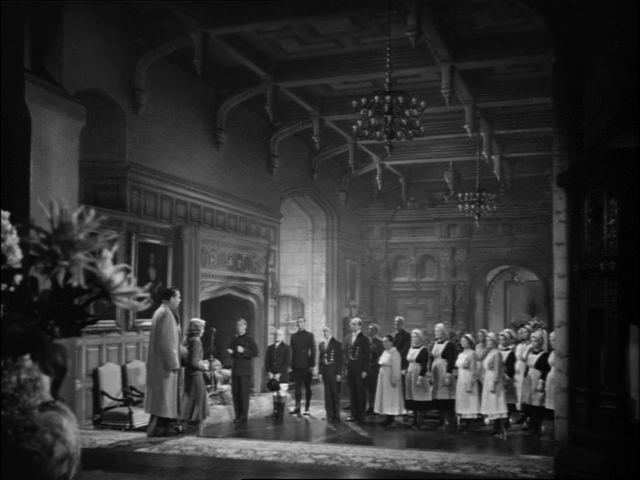
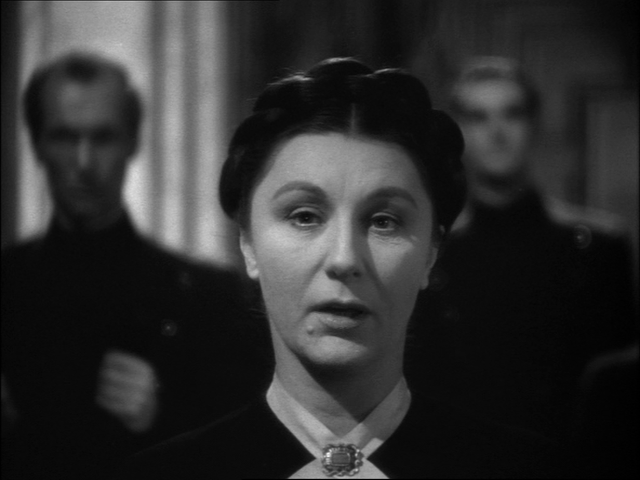
When the marriage has been setup, we get to the part where they enter his estate Manderley for the first time. This is so important as it sets up the place as an important "actor" in the story. Because De Winters (Lawrence Olivier) former wife Rebecca died but her "spirit" still lives everywhere in it, it seems. It is a house of humongous proportions, like a cathedral or vault-like mausoleum, compared to what the young girl (Joan Fontaine) is used to. The servants are like Rebecca´s ghostly minions still mourning over their loss, not wanting new and fresh ideas of "living" inside there. The whole point of not naming the girl, but instead letting the dead woman Rebecca´s name come to the fore is to illuminate that the girl is actually of little importance in herself. It is the stories of the past all labelled as Rebecca that is haunting everyone. The girl is a placeholder for our own fear of how the past may interfere with our own life or the ones we think loves us.
Here comes another important shot. The housekeeper enters the frame in such a menacing manner that it has almost become a stable of "haunted house" movies ever after (like Frau Blücher in Young Frankenstein for a comic version). Judith Anderson plays this role as the dark and menacing spinster housekeeper Mrs. Danvers in a genre defining manner. Ho-ly shit she is menacing. I don't know exactly what it is but Hitchcock had a unique ability to get the best out of these characters. We see the same basic character in other of his movies and there is just something about the way he zooms, the way the lighting falls, the close up distance and the angle and so on, that creates a unique, menacing feel with so little "additional" help that I am bound to say that no one has ever been able to really copy this. It is astounding to me and a shot like this introduction to Mrs. danvers is a milestone in cinematic history.
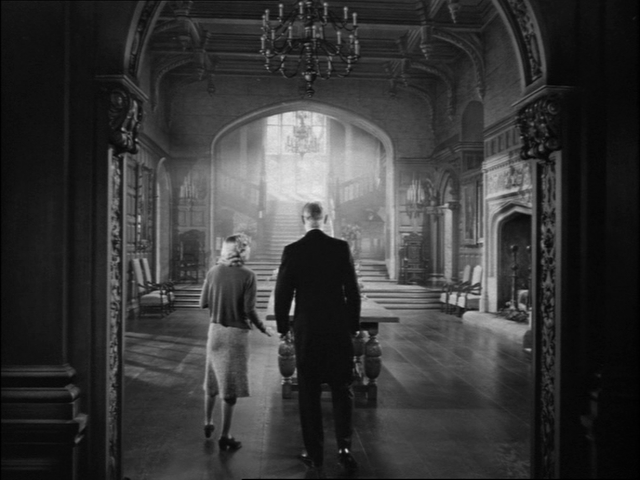
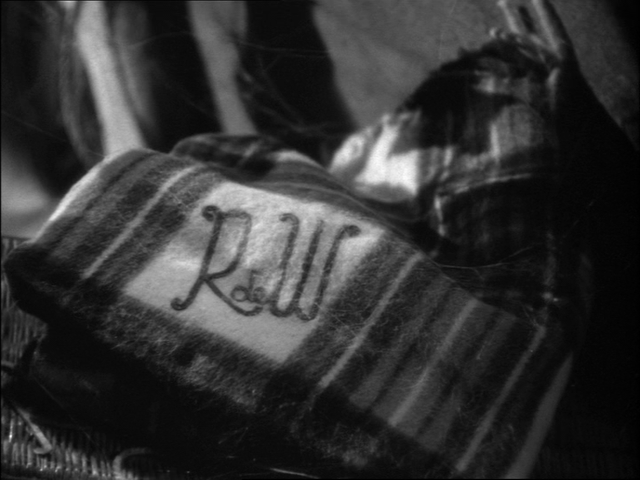
Another important thing worth noting here is that the scene ends with the second Mrs. De Winter dropping her gloves and both her and Danvers bows down in synchronisation to pick them up. I have thought a lot about this little sequence, because I am pretty sure this is no coincidence. As they are opposed to each other in every other way in the story, the only thing that I can explain this with, is that it is a sexual gesture. Danvers is an old lesbian spinster who is attracted to the new gorgeous young lady, but still is devoted to her old "dominatrix" Rebecca. This is in no way overt, let me put that straight, but it is a genius directorial manipulation of your subconscious to possibly stir sexual "desires". These kinds of "hints" would have to be covered up so deeply back in those days and homosexuality in particular. (Another hint may be the gentle touches of the girls cheeks with Rebecca´s fur and the "see through" sexy stockings of hers, presented by Danvers. Clearly a reference to more than a "professional" relation with Rebecca).
The second act deals mainly with the girl, the second Mrs. De Winter (she remains otherwise nameless) getting acquainted with the staff, the house, the things she is expected to do and trying to be a good wife to Mr. De Winter. He is quite distant in his manner and rarely sounds like he is genuinely interested in her. When he does it has an air of "I guess I have to play with her and say a few nice things so she will still feel loved and somewhat at home".
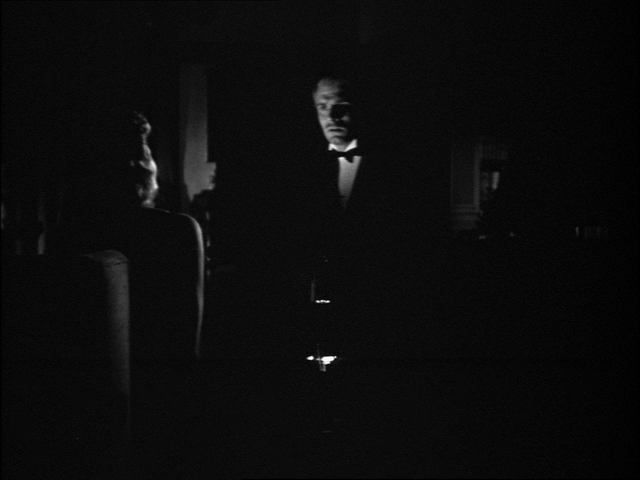
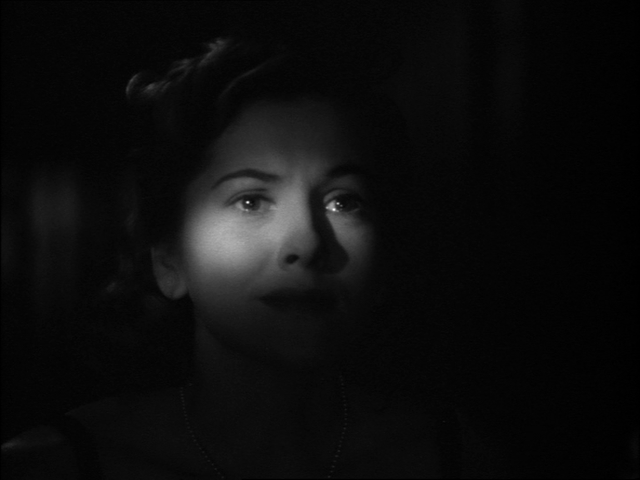
But there are cracks in the love affair. When she does not behave as he thinks fit, he is seconds away from a fit of rage. He has a genuine problem with anger management and it serves as an indication that he is hiding something or that there are some past history of his relation with Rebecca and the place in itself, that reminds him of past deeds which is being suppressed. Mrs. Danvers creeps around the castle like a ghost, only appearing like out of nowhere in the room as experienced by Mrs. De Winter. This has been explicitly stated as a deliberate choice of Hitchcock in his talks with Truffaut, to make her horrifying and unpredictable. Danvers manipulates the girl constantly trying to set Mr. De Winter against her and when everything seems to have gone astray, convince her to end her life by jumping out of a window.
Paradoxically, a ship is wrecking near the shore, at the exact moment that the girl might jump. And this relates to Rebecca as she apparently died from suicide going down with her boat (named something like "I Will get back"). The rescue mission reveals the boat that Rebecca went down with and a body is also found. But since her body was originally identified by Mr. De Winter and buried, who is it then that is lying in the boat that went down? Another point that is not explained in the movie (I don't know if it is in the novel), who is it that washed up on the shore back then that Maxim De Winter identified as his wife?
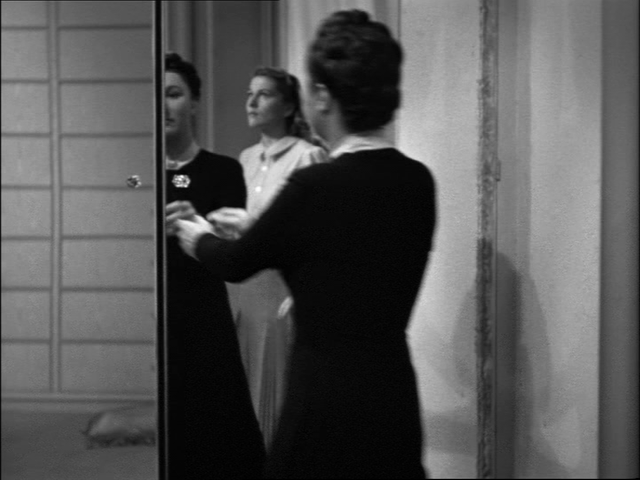
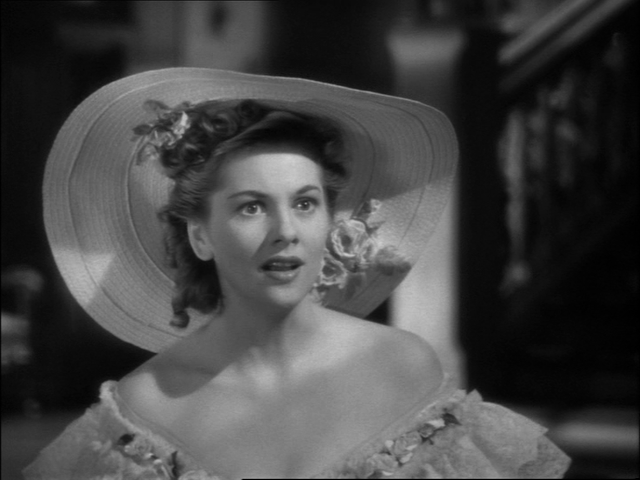
Off course the suspicion falls on Mr. De Winter now and a traditional kind of whodunnit bit ensues before he is eventually cleared of all charges by the doctor that Rebecca visited the day before she apparently killed herself. This little "detective" story at the end does take the movie a bit out of its gothic horror mode and into an ever so slightly goofy detectives territory that I am not particularly fond of all considered. The whole feel of the movie is set up to visual, haunting and menacing storytelling, while this is expositional part to get things wrapped up, is a necessary part but too explanatory for the movie overall. It is not quite the "pure cinema" Hitchcock himself claimed to be going for and I find it a particular bad choice in this case.
The saving grace is the burning of Manderley by the dark ghostly figure of Mrs. Danvers, who would rather "go down" with the "boat" Manderley and her Mistress, than let the "healed" De Winter couple live there in a joyful and jealousy free marriage.
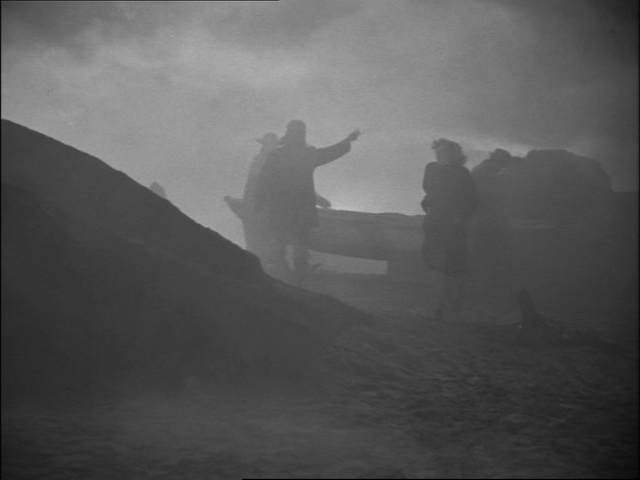
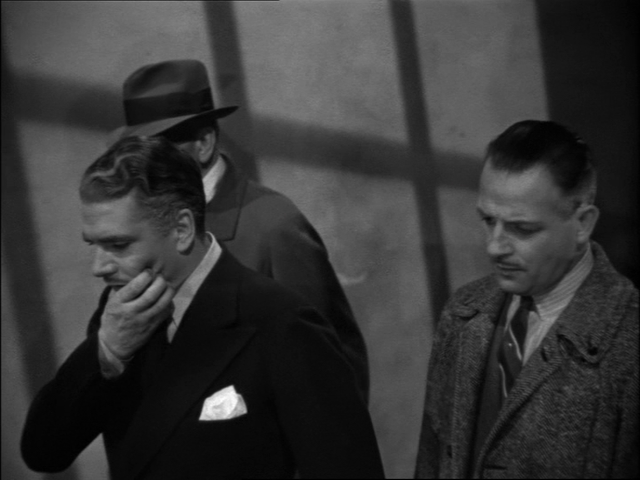
I used to find Olivier´s version of De Winter a bit to reserved and "absent minded" you could say. But as time has flown, I have warmed to it and at this point in time find it pretty much flawless. He is not the most emotionally "present" of actors. He feels a little stiff. But in this case, it suits the role perfectly as that is exactly how he needs to be. The whole point is that these two personalities are so far from each other in lifespan, experience, emotional state and understanding of what their love life should be. Olivier has to feel absent minded so that we keep wondering what it is that ails him and if it really is a streak of his nature or just a temporary darkness befallen him as an after result of his former wife's death. His patriarchal manners adds to her alienation. Leaving her emotionally "alone" with this housekeeper in a tomb of a house. It is exactly what Hitchcock should, and did, go for.
Overall, this is a masterpiece in my opinion. There are little things here and there that could be improved I guess, but in total it has so much going for it, that it has to be considered a milestone in cinema. The overall best part of it is the feel of the movie that goes through most of it (save the detective story in the third act). The only other Hitchcock movie that does this in a similar manner would be Vertigo. Here I get the same sense of constant foreboding and horror, that just builds and builds and is only relieved until the last minutes. I just love movies that does that and add to that, we get one brilliant piece of cinematography after the other. Some shots here literally etches into you memory and stays there. Then there is the performance of Judith Anderson, which is so incredible as Danvers, that I can watch the movie just to enjoy how well she is created as a menacing, ghostly manifestation of pure evil. Lastly, and probably, for me, what takes it all home for a masterpiece, is the coming alive of the haunting house. The sheer scale and size, its halls and corridors, its secret rooms and oozing of old memories is so evocative - I cannot think of another movie that does this better.
10/10
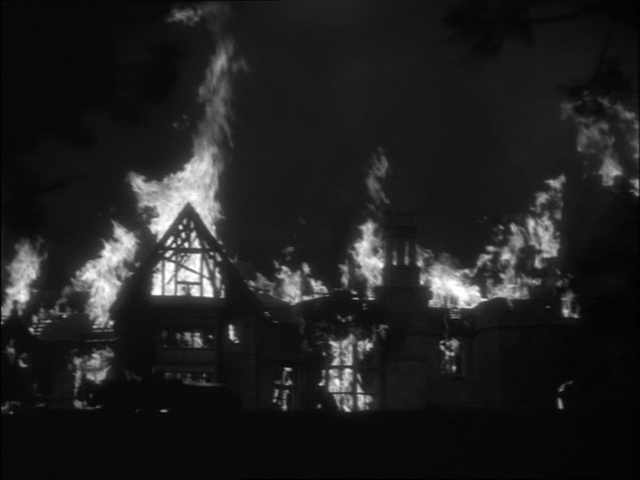
Hello @mandibil, thank you for sharing this creative work! We just stopped by to say that you've been upvoted by the @creativecrypto magazine. The Creative Crypto is all about art on the blockchain and learning from creatives like you. Looking forward to crossing paths again soon. Steem on!
Thank you
This post was shared in the Curation Collective Discord community for curators, and upvoted and resteemed by the @c-squared community account after manual review.
@c-squared runs a community witness. Please consider using one of your witness votes on us here
Thank you
Well written and great background information. I really do enjoy black and white films.
Thank you very much. I try to make it worth while to read .-)